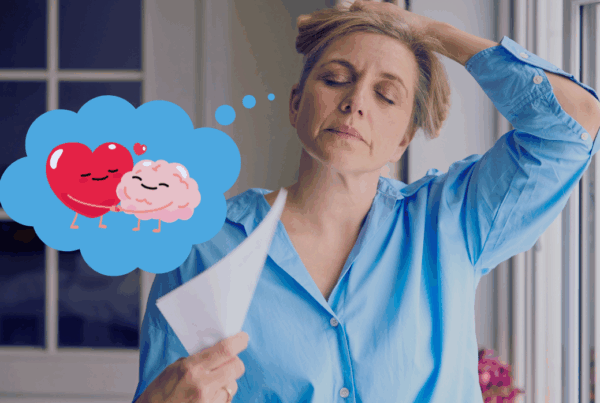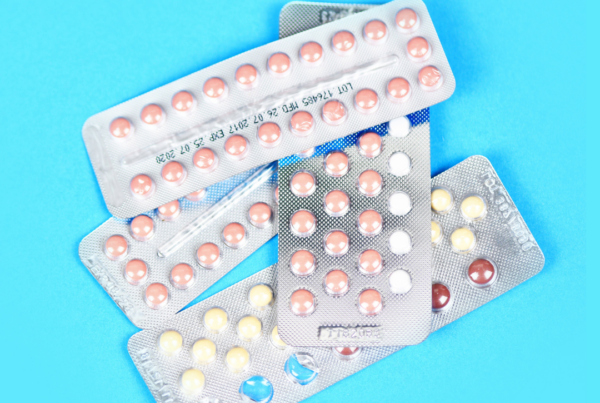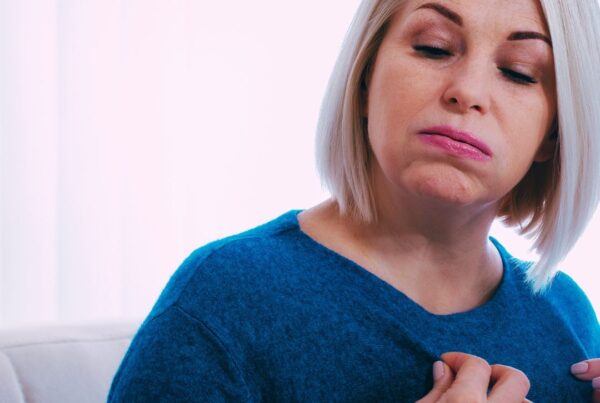late reproductive stage
What’s happening now?
As you approach the later part of your reproductive years, you will release an egg less often (these cycles where you don’t release an egg are called “anovulatory” cycles). This means your chance of falling pregnant is reduced (although still possible) and you will start noticing slight changes in your cycle – maybe lighter or heavier flow, or starting to become a bit less regular – a few days earlier then a few days later.
The hormonal changes occurring during late reproductive stage (LRS) are not fully understood. Every month, 8-12 or so eggs in their surrounding follicles present to the edge of the ovaries. Each follicle produces hormones – oestrogen and also Inhibin B. These hormones feed back to the brain to let it know everything is on track. One of these eggs becomes dominant and ovulates. It then becomes the ‘corpus luteum’ and produces progesterone as well as oestrogen.
As your ovaries mature, less eggs present to the edge of the ovary every month. The reduced production of both oestrogen and Inhibin B signals the brain to produce more FSH, which forces the follicles to make more oestrogen. Oestrogen is normal to high, Inhibin B is low and FSH is elevated . These are the hormonal changes occurring in LRS. You might notice your cycle creeping a day or 2 earlier as the over-stimulated follicles cause ovulate to occur sooner.
We do not fully understand why these changes result in symptoms. There is much more to learn. We do know FSH causes increase adiposity and bone loss in rats, even whilst oestrogen levels are normal but we do not fully understand the complex role FSH plays in human brains.
The next major change is less consistent ovulation and a less effective luteal phase (the second half of the cycle) where there is less progesterone produced. Symptoms can be understood as due to imbalanced oestrogen. The period will start to become more irregular and flow may become heavier. In some cycles, there may even be 2 ovulations!
Whatever the hormone changes, women can experience symptoms despite not being in “perimenopause” by strict definition.
There are some symptoms that can arise from these anovulatory cycles.
-
periods becoming slightly irregular and flow changing
-
PMS and breast tenderness may become worse
-
mental health problems can surface now, particularly where there is a background of severe premenstrual mood changes, postnatal depression or a history of clinical depression.
-
migraines and headaches can be triggered or start occurring for the first time due to fluctuating and unbalanced hormones.
-
aches and pains
Best treatment for this stage
Most women don’t need any specific help for bothersome hormonal symptoms just yet but it’s a perfect time to start getting your lifestyle in order – be active, eat well, get enough sleep , manage your stress.
These healthy habits will not only make you feel more energetic and brighten your mood in the short term but will protect your health and wellbeing in the years to come. They may also reduce the intensity of menopausal symptoms later.
If you are using the combined contraceptive pill for contraception, sometimes changing the type of pill to a lower dose or using a progestogen only pill can be considered as you prepare for future changes or have additional risk factors for using the pill such as smoking or obesity.
If you are experiencing mental health problems or aggravation of migraines, hormonal treatments might help but often require trial and error and may not be predictably successful until your cycle starts to lengthen.
The most predictable option is to override and replace the hormone cycle entirely by using a combined contraceptive pill. Some modern preparations have body-identical oestradiol at low doses, the same as many low dose oral MHT formulations.
Progesterone can be used during the second half of the cycle if symptoms are cyclic or all month for symptom relief. A Mirena IUD can be used if contraception and heavy bleeding are the main concerns.
Your choices depend on your symptoms, your past sensitivity to synthetic hormones and your contraceptive needs.
There is no doubt LRS is a tricky and troubling time form many women, but it will not last.
What’s up next?
“Early Perimenopause” is ahead of you.
You may sail through, or you may experience worsening PMS, breast pain, unexplained weight gain, start having hot flushes and sweats, disrupted sleep, aches and pains, notice new mood changes or have aggravation of previous mental health problems. You may think you are going mad (you are not). In early perimenopause, your period will start to become more irregular both in timing and flow.
A note on blood tests
Unfortunately, blood tests are not very helpful as hormones vary from day to day, week to week, cycle to cycle. Your period, age and symptoms are usually enough to estimate your stage.
If there is doubt as to the cause of your period changes or if you are younger than 45 and are not getting a period, your doctor may order a series of blood tests to explore your cycle and exclude other conditions impacting it.
The hormonal blood tests offer clues but are frequently insufficient to make a clear diagnosis until menopause has been established (there has been no period for 12 months). Blood tests may show an elevated FSH even whilst oestrogen is normal, during LRS.
This information is for general educational purposes only and does not constitute medical advice. Please see your health professional for advice that is personalised to you.
Key take aways
During late reproductive stage your period is still quite regular, your flow may have changed and there may be early symptoms of hormonal change such as mood disorders and headaches.







